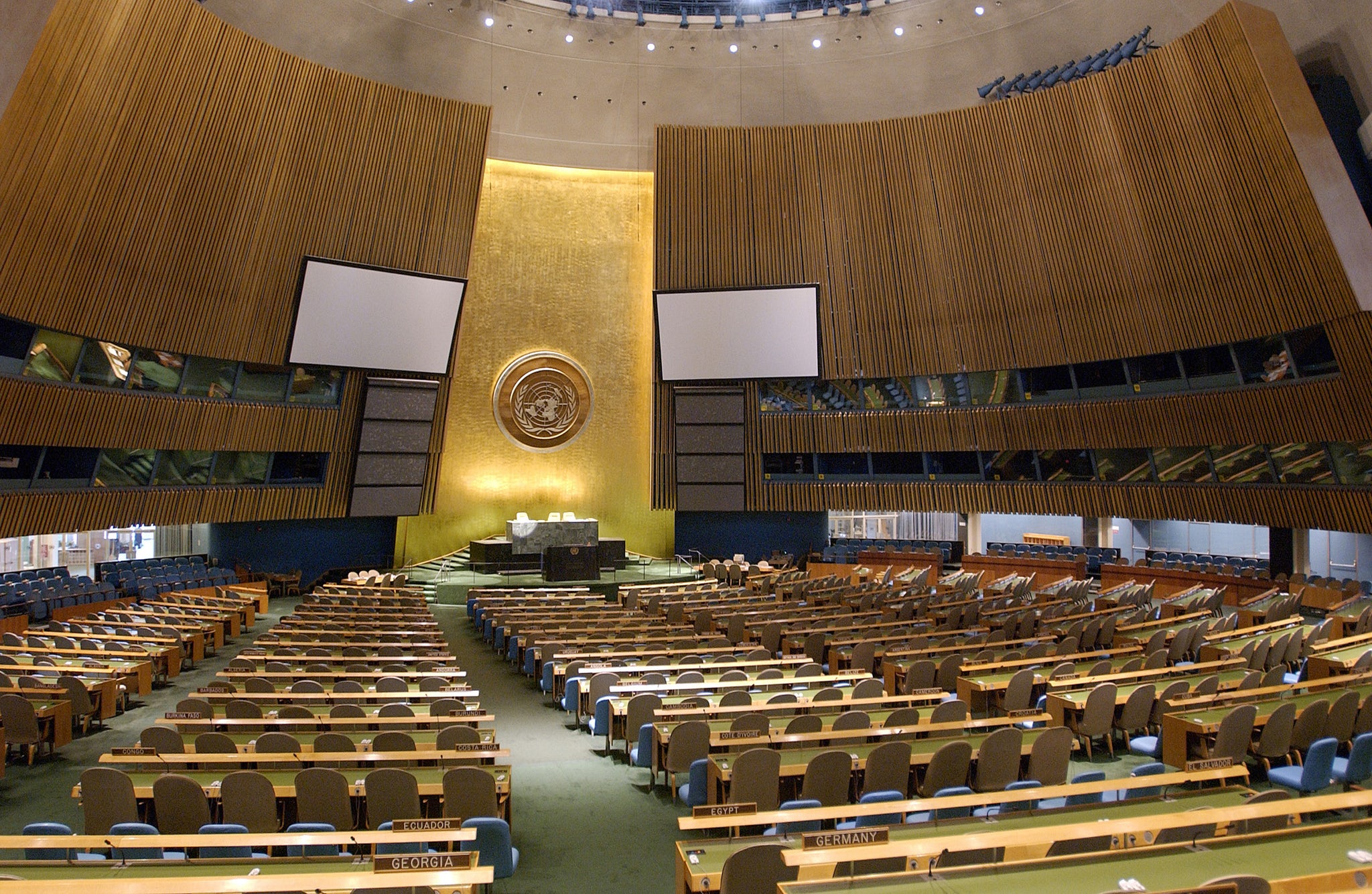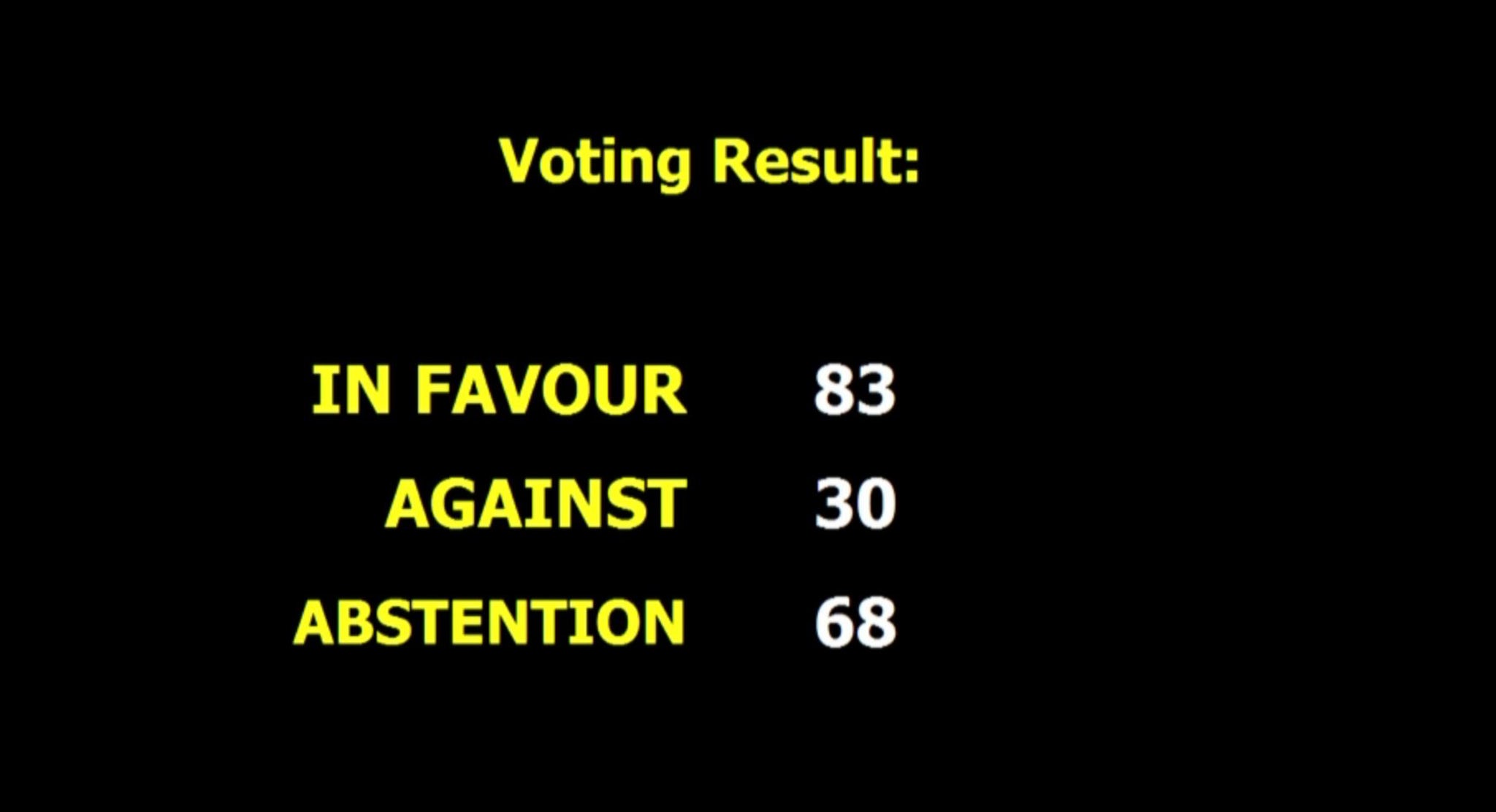Source: news.bahai.org

UNITED NATIONS — A committee of the United Nations General Assembly today condemned Iran for its continuing violations of human rights, the 30th such resolution since 1985.
By a vote of 83 to 30 with 68 abstentions, the Third Committee of the General Assembly approved a five-page resolution expressing concern over illegal practices ranging from torture, poor prison conditions, arbitrary detention, and curbs on freedom of religion or belief to state-endorsed discrimination against ethnic and religious minorities as well as women.
The resolution expressed specific concern over Iran’s treatment of members of the Baha’i Faith, the country’s largest non-Muslim religious minority. It highlighted the economic and educational discrimination against them and called on Iran to release the more than 90 Baha’is who are unjustly held in Iranian prisons.
“We welcome this resolution and its strong condemnation of Iran’s ongoing human rights violations,” said Bani Dugal, the Principal Representative of the Baha’i International Community to the United Nations.
“Despite the Iranian government shifting its strategy of oppression and supporting a vigorous public relations campaign to deny the existence of such violations, the resolution today shows that other governments have not been deceived and that Iran’s failure to heed international law remains high on the international agenda,” said Ms. Dugal.
The resolution follows a strongly worded document from the UN Special Rapporteur on human rights in Iran, Asma Jahangir. Her 23-page report, released earlier this session, catalogued a broad range of rights violations by Iran.

Ms. Jahangir cited “serious human rights challenges” including “the arbitrary detention and prosecution of individuals for their legitimate exercise of a broad range of rights; the persecution of human rights defenders, journalists, students, trade union leaders, and artists; a high level of executions, including of juvenile offenders; the use of torture and ill-treatment; widespread violations of the right to a fair trial and due process of law, especially before revolutionary courts; and a high level of discrimination against women and religious and ethnic minorities.”
She also highlighted the situation of Iranian Baha’is, noting that “members of the Baha’i community have continued to suffer multiple violations of their human rights.”
Ms. Jahangir in particular called attention to the case of Farhang Amiri, a Baha’i who was stabbed to death in September 2016 and whose confessed killers were swiftly released on bail.
“Despite the fact that they have been documented for years, these violations continue unabated and with full impunity, as shown by the release of the murderer of a Baha’i,” she said, referring to Mr. Amiri.
Ms. Jahangir’s report also noted that “thousands of Baha’is have been expelled from their jobs, with their pensions having been terminated, and have been banned from employment in the public sector.
“Companies are pressured to dismiss Baha’i employees, banks are forced to block the accounts of Baha’i clients, and Baha’i business licenses are either not issued, not extended, or deliberately delayed.”
Leave a Reply